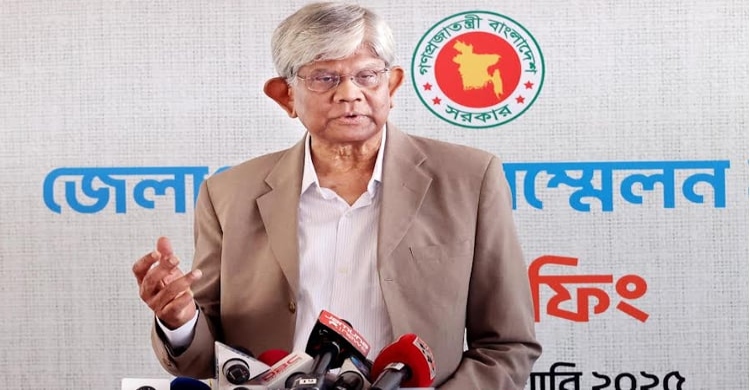Govt aims to build a welfare-oriented state: Dr Salehuddin Ahmed


The interim government, headed by Nobel Laureate Professor Dr Muhammad Yunus, wants to turn Bangladesh into a welfare-oriented state through improving the lives and livelihood of common people of the country.
“On the whole, we’re vying for turning Bangladesh into a welfare-oriented state where none will only think about growth and growth related things side by side the lives and livelihood of common people will improve further,” said Finance Adviser Dr Salehuddin Ahmed.
Talking to BSS at his office ahead of announcing the national budget for FY26 on June 2, the finance adviser highlighted the vision and objectives to be reflected in the forthcoming budget which would also be the first of its kind of the interim government.
As no Jatiya Sangsad is currently in place, the finance adviser would present the budget via televised speech, to be formalised through a presidential ordinance.
Officials familiar with the budget formulation process said that the government is likely to deliver a Taka 7,90,000 crore national budget for FY26, which is likely to be Taka 7,000 crore smaller than the original budget size for the current fiscal year.
This will mark the first televised budget speech of the interim government since the fiscal year 2007–08 when former caretaker government Adviser AB Mirza Azizul Islam delivered two budgets in a row via national broadcast.
When asked what would be the main message for the common people in the budget, the finance adviser said firstly, this budget would be for the common people, the economy would grow side by side there would be measures for expansion of trade and commerce, more employment generation including self employments.
“The education, health and social safety net issues will remain at a comfortable state while we’re trying our best so that the benefits of development reach to the common people although it may not reach equally to all,” he added.
When asked about the country’s present economic condition following the uprising last year, Dr Salehuddin said that the country is now more or less in a good condition.
“When we took charge in August last year, both the political and economic condition was not good and there were problems in the country’s economy including in the banking sector as well as in trade and commerce. But, we’ve been able to come out from such acute crisis while stability has been restored more and less,” he added.
He went on saying, “I think we’ve reached in to a comfortable position. But, we’re being surrounded by various challenges and those are likely to intensify further. We’ve a lot to do considering the current global context including the US tariff issue and the Russia-Ukraine conflict … these are all external challenges.”
About the internal sector, Dr Salehuddin Ahmed, also a former central bank governor, said there were no such progress in trade and commerce in the first four months following the mass uprising last year although it had picked up later due to the prudent measures. “But, now we’re progressing ahead and it’s positive as a condition of comfort has now been restored,” he added.
About the deliberation of the budget this time in an unusual manner outside of Jatiya Sangsad, the finance adviser said that they have already given an outline of the budget except the figures as those could be changed until the previous night of the announcement of the budget.
After announcing the budget on June 2, he said that there would be some time for having the reactions and suggestions while the budget would be approved finally in the later part of June.
“We’ll try our best to know about the advantages and disadvantages of the businessmen, the prospects and challenges, the conditions of the livelihood of common people, the inflationary trend both in food and non-food, trade and commerce. We’ll consider these issues on the whole while we’ve done more or less a good preparation,” he said.
Replying to a question, the finance adviser said that this budget would not be usual, rather a practical-based one.
“We want that we’ll not give a huge assurance to the country’s people or the budget speech won’t have flurry of words (Kothar Phuljhori). We’ll give our budget considering our resource constraints. Our aim will be to ensure flourish of trade and commerce, economy, generating more employments, and on the whole we’ll try to simplify further the livelihood of common people as well as make it nice,” he said.
The finance adviser also said that there would be more emphasis on social safety nets, education and health sectors alongside the other sectors.
